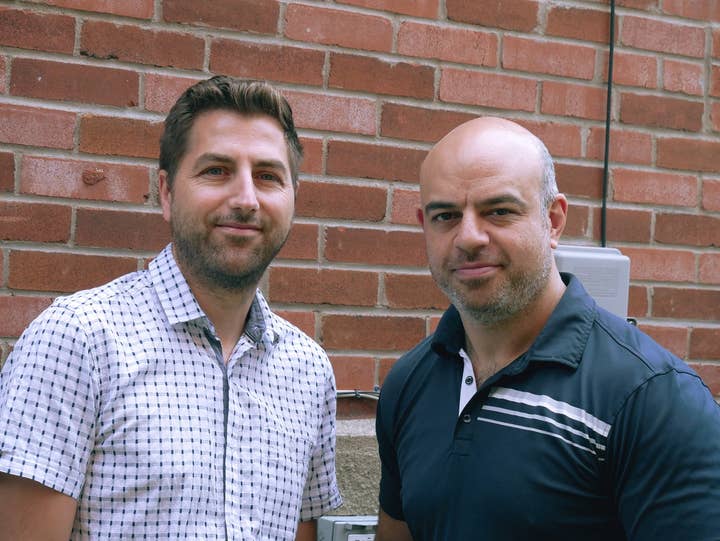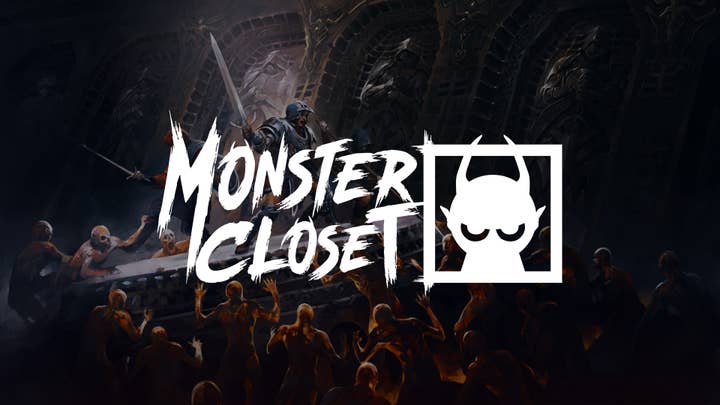Monster Closet getting back to roots it never had
Long-time AAA vets from Ubisoft return to smaller team development by going indie, discuss building studio culture and the AAA brain drain
It's not unusual these days for life-long AAA developers to jump ship and start their own indie studio, but there aren't so many like new Montreal-based Monster Closet that can see the jump as something closer to their AAA roots.
"We built games in the older days when we had smaller teams," Monster Closet CEO Graeme Jennings tells GamesIndustry.biz. "I think a lot of us miss that feeling. We wanted to build a smaller team, build a smaller scale game where we knew everyone and we could build it from the ground up with the values that were important to us."
Jennings' AAA roots stretch back so far he was a lead tester on 2001's Grand Theft Auto 3. Monster Closet's chief creative officer JC Guyot was lead game designer on Rayman 2 in 1999. Fellow founders Mickael Labat, Thomas Simon likewise have development careers going back to the 1990s, while Thomas Félix is the relative rookie of the founding group, with a resume that only stretches to the mid-2000s.
Over the years each has progressed to senior roles in AAA development, with Jennings executive producing titles and the others serving at least as directors for their disciplines. Between their career advancement and the ballooning size of development teams, their roles on a project have changed dramatically.

"As we grew teams, everyone became more specialized and a little bit more compartmentalized," Guyot says. "I think this is a bit going back to the woods of game making, where we can be at a size where everyone can contribute a little bit more and be a bit more free in terms of creativity. If you want to try something, you just do it instead of putting it on a task list."
He adds, "With a smaller team, you need way less specialization and way less hierarchy. The best work is made when people are empowered and can explore their own creativity."
"The best work is made when people are empowered and can explore their own creativity"
JC Guyot
While the team has experience in key roles on big games like Halo Wars 2, Far Cry: Primal, 2008's Prince of Persia, and Assassin's Creed 4: Black Flag, the only project they all have in common is their most recent one: Ubisoft's Hyper Scape.
While they presumably liked their co-workers on the project just fine, it doesn't sound like the free-to-play first-person shooter turned out quite like they hoped. Jennings says not to expect Monster Closet to lean into free-to-play games, at least not to start.
"Being a new studio and we're building a new team on top, we'll lean more into the expertise we have, that we were successful with, and then maybe we'll branch out again," Jennings says. "I have no desire for the first title we do to be free-to-play, to be honest.
"I think our skillset has been successful in certain games and genres, and we were less successful in free-to-play. And speaking for myself, [there was] to some extent a lack of experience in free-to-play at times and knowledge of what makes [free-to-play games] good or not. So I'd rather lean into something we know how to do more to have a level of success to start, and maybe we look at it again in the future."
That said, Jennings believes that everything a developer works on is a lesson in some way, and Monster Closet is taking advantage of what it learned about player retention and engaging communities. Specifically, he plans to have Monster Closet engaging with players and getting feedback on the game earlier in the development process so that they can quickly iterate on and improve the game.

Monster Closet's formation comes in the middle of a number of industry trends that could amount to a sort of "brain drain" of AAA talent. Recent years have seen an abundance of investor interest in gaming, and few things have been as effective at attracting investor attention as proven AAA talent. Combine that with recent scandals at Ubisoft and Activision Blizzard and there's also probably never been as large a pool of potentially demoralized AAA developers considering other career options.
While Jennings had nothing bad to say about Ubisoft, he says the AAA brain drain is a real thing.
"There's a lot of brain drain in general, and Covid made it worse"
Graeme Jennings
"When you've been going from huge teams and long, large-scale projects to the next one to the next one, it gets tough," Jennings says. "There's a lot of overhead. Shipping Hyper Scape in Covid last year was absolutely not an easy experience. Things started to close in March and we had the build live in June and July.
"There's a lot of brain drain in general, and Covid made it worse. For us we're just at the age now where we wanted to do something different and funding's reasonable to find these days for experienced teams. We wanted to do something different and felt now was a good time to go out and try it."
Guyot adds that the increasing quality and accessibility of tech available to independent developers is a contributing factor, as "leaving a big company doesn't mean taking such a hit on the power and usability of tools."
That may be true, but leaving a big company to start a new one does mean creating a studio culture from scratch. And while the founders of Monster Closet are trying to rekindle the feeling of developing games back when they were starting, they know that can't mean returning to the same kind of working conditions and cultures that used to be the norm.
"I think the level of professionalism within the industry has gone up since I started," Jennings says. "It was very overtime heavy, and that was fine; I was younger. I think the kind of overtime has changed. People's approach to being in the industry has changed too, and a lot of companies are trying to push a better kind of professionalism to the way things are done."
He particularly notes the progress the industry has made on diversity and inclusion issues, on training, and on bringing "new blood" into the industry.
"There are a lot more jobs and opportunities, so I feel there's more balance now between employer and employee than before"
Graeme Jennings
"When we first started in the late '90s, it was given to you like it was a gift that you managed to find a job in the industry and it was a privilege to be part of it," Jennings says. "I think that's changed a little bit now in the fact that there are a lot more jobs and opportunities, so I feel there's more balance now between employer and employee than before."
He adds, "You see a lot of companies that are like, 'People first,' and have all these taglines and stuff. I don't want taglines for us, I just want to do it. We want it to be good. We want to hire a diverse troop from across the board."
Jennings notes that a quarter of Monster Closet -- including the project lead -- are women.
Beyond that, he wants Monster Closet to have an open culture without a hierarchy.
"I hate the notion in the industry where you have people who feel like they're the royal family and you can't go and talk to them," Jennings says. "Even as CEO, I'll have a desk in the middle of the floor. Everyone will talk to everyone. There's no walls and borders or those kinds of things. You want to build an open culture where people can speak and discuss things. And even when we take strategic decisions, I want to discuss them together."
Guyot adds that it's important the studio not grow too quickly, that it give people time to settle in and get used to working together.
"When things grow too large too fast, it gets way harder for people to be able to know each other or be able to express themselves," he says.
Jennings follows up on that point, saying, "I just want to make sure we do this well, everyone has a voice, and they feel free to discuss it. I would hate if we ended up in the place where people had problems and they felt they couldn't talk about them. That's really the sign of failure and I want us to make sure we never, ever have that."
